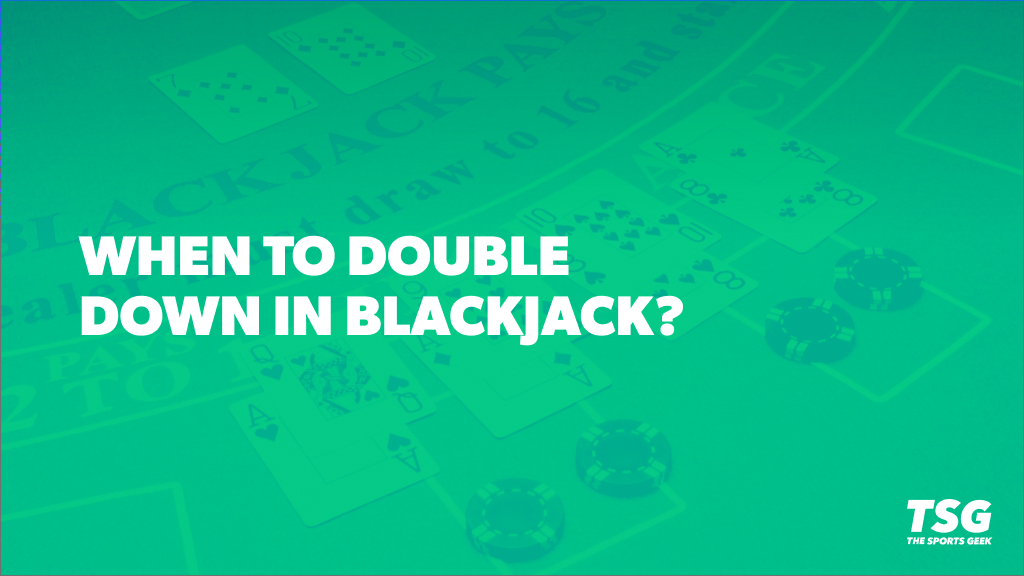
Mastering the art of when to double down in blackjack can significantly improve your long-term strategy. In advantageous situations, you can use this move to improve your expected return on a strong hand.
I share my best strategies for doubling down here that apply to most blackjack tables, regardless of the rules.
When to Double Down in Blackjack Overview
You want to double down in blackjack every single time you have over 50% chance of winning the hand after the next card is dealt. You usually need to have a stronger starting hand than the dealer with zero chance to bust after an extra card for this condition to be true.
This is not always obvious because every blackjack table has different rules, but there are common spots that you want to target almost always.
Here are the situations you should double down when playing real money blackjack.
- You have 11.
- You have 10 and the dealer is showing a 9 or lower.
- You have 9 and the dealer is showing a 2-6.
- You have a soft 16, 17, or 18.
The spots above should be incorporated in your double down blackjack strategy because they provide profitable opportunities. Let’s see why.
You Have 11
A starting hand of 11 is the best time to double down in blackjack. Any face or 10 gives you 21, and it is impossible to bust on a single card. Even if you do not get a 10, you still have a high chance of getting a strong hand that will be tough for the dealer to beat.
10 vs. a 9 or lower
Starting with a total of 10 points is also a strong position to be in. If the dealer is showing a nine or lower, you should double down. An ace gives you 21, and any card eight or higher gives you an excellent chance to beat the dealer.
9 vs. a Weak Dealer Hand
A starting total of nine points can also be a good time to double down, but only if the dealer has a two through six showing. You cannot bust and still have a chance of getting a strong hand with one card. Also, since the deal will likely need to hit their hand, they have an increased chance of busting.
Soft 16, 17, or 18
Soft totals of 16 (A + 5), 17 (A + 6), or 18 (A + 7) are also good opportunities to double down. Once again, you cannot bust, and your hand can be improved. It is especially advantageous to double down in this situation when the dealer has a weak up card.
Ready to Double Down in Blackjack?
You should double down in blackjack when you cannot bust, the dealer is in a weak position, and you are likely to hit a strong hand with one hand.
If you are ready to practice your doubling down strategy in blackjack, I highly recommend Lucky Rebel Casino. It offers dozens of blackjack games, including live dealer tables. The casino offers a 200% welcome bonus for new members that can be used on select blackjack titles.

Welcome Bonus
200% up to $2,500
- Fast crypto withdrawals
- High bet limits





You must be logged in to comment. Don't have an account? Sign up today.